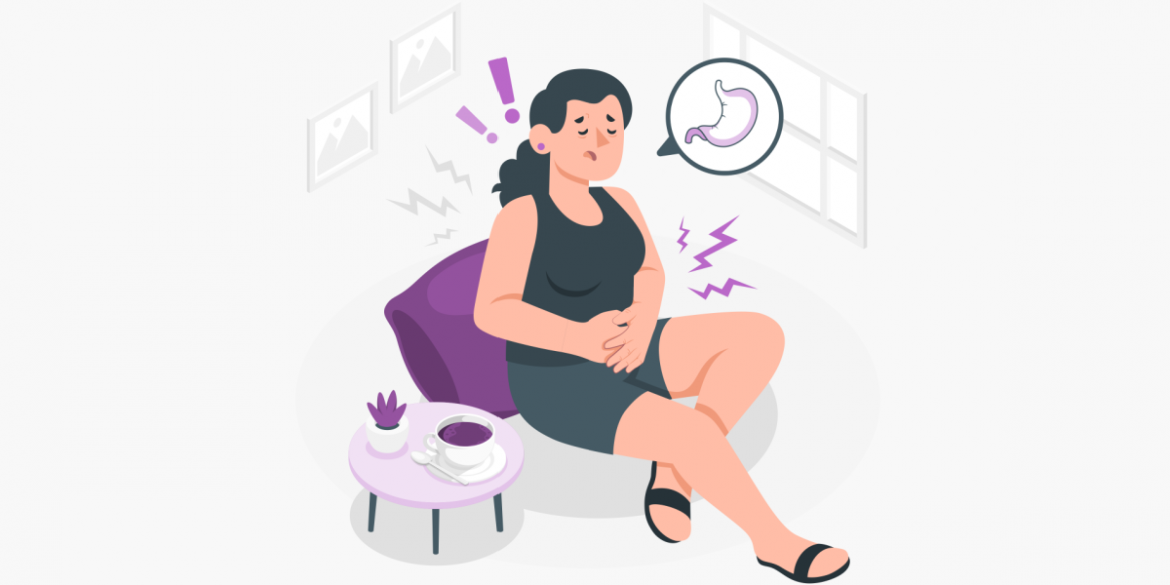By Emmy Bawden
Bloating is that bothersome sensation of your gut stretching from fluid or gas. It’s one of the most common gastrointestinal symptoms, and while the causes of bloating are quite complex and can be a sign of a medical condition, occasional bloating is normal and may actually indicate good bacteria growth. But this doesn’t make it any less uncomfortable! Here are the top causes of bloating and how to alleviate them.
CULPRIT #1: YOUR CYCLE
Have you noticed how bloating worsens leading up to and/ or during your period? This is related to a shift in estrogen and progesterone that causes water retention and uterine lining thickening, but that’s not all! Research suggests sex hormone receptors line the digestive tract, so changes to hormone levels may affect how sensitive the gut is, how well gut muscles contract to move contents through and your body’s response to stress (see Culprit #2), all of which may increase bloating.
Try this: Limit alcohol, coffee and bubbly drinks for a few days, and shoot for some light movement, like gentle yoga or walking, to keep things moving in your gut (including built-up gas).
CULPRIT #2: STRESS
The way we deal with stress has a huge impact on our gut thanks to the gut-brain axis, which is the two-way communication line between these systems. When our brain detects external stress, the sympathetic nervous system (the “fight or flight” system) is stimulated, which causes energy to be directed away from the gut. This changes how our gut functions via the enteric nervous system that lines our digestive organs, and as a result, its contents may move through your system more slowly (or for some people, it may speed things up). In addition, your gut may become hypersensitive, and these two changes may therefore trigger symptoms such as bloating.
Try this: Take five minutes of deep belly breaths (i.e. diaphragmatic breathing) every day for at least eight weeks.
CULPRIT #3: TOO MUCH FIBER
There is such a thing as too much fiber! Because it’s not digestible, excessive fiber (or increasing fiber in your diet too quickly) can lead to excess gas production, and as a result, bloating. This is especially true of sources of fiber like beans, onions and apples, because our good gut bugs love to ferment these.
Try this: Cut back on fiber to 25-36 grams per day, spread it out across your day and try low fermentability, fiber-rich foods like oats, almonds, chia seeds, spinach and strawberries.
CULPRIT #4: THE WRONG SUPPLEMENTS
Many supplements are loaded with fermentable, bloat- inducing ingredients that, while they serve as excellent “food” for probiotics in your gut, can cause significant discomfort for some. Although not everyone is sensitive to these ingredients, they’re commonly found in certain prebiotic or probiotic supplements, protein bars, and powders, fiber supplements and bars and zero-sugar products.
Try this: Look for and try reducing ingredients such as inulin, chicory root, sugar alcohols and fructooligosaccharides (FOS). If you’re interested in a fiber supplement, check with your doctor first and consider a low-fermentability soluble fiber, such as plain psyllium husk.
Emmy Bawden, MS, RDN, CD and LDN is a registered dietitian nutritionist and owner of the Madison-based nutrition therapy practice Real Good Nutrition.




